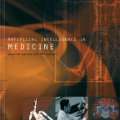Many intelligent transportation systems are multi-agent systems, i.e., both the traffic participants and the subsystems within the transportation infrastructure can be modeled as interacting agents. The use of AI-based methods to achieve coordination among the different agents systems can provide greater safety over transportation systems containing only human-operated vehicles, and also improve the system efficiency in terms of traffic throughput, sensing range, and enabling collaborative tasks. However, increased autonomy makes the transportation infrastructure vulnerable to compromised vehicular agents or infrastructure. This paper proposes a new framework by embedding the trust authority into transportation infrastructure to systematically quantify the trustworthiness of agents using an epistemic logic known as subjective logic. In this paper, we make the following novel contributions: (i) We propose a framework for using the quantified trustworthiness of agents to enable trust-aware coordination and control. (ii) We demonstrate how to synthesize trust-aware controllers using an approach based on reinforcement learning. (iii) We comprehensively analyze an autonomous intersection management (AIM) case study and develop a trust-aware version called AIM-Trust that leads to lower accident rates in scenarios consisting of a mixture of trusted and untrusted agents.
翻译:许多智能运输系统都是多试剂系统,即交通参与者和运输基础设施中的次系统,可以以互动代理人为模范。使用基于AI的方法实现不同代理系统之间的协调,可以对仅载有人操作车辆的运输系统提供更大的安全性,还可以提高运输系统的效率,包括交通输送量、感测范围以及有利的协作任务。然而,增强自主性使运输基础设施容易受到车辆代理或基础设施受损的影响。本文件提出一个新的框架,将信任当局纳入运输基础设施,以便系统地量化使用被称为主观逻辑的缩略论的代理人的可信赖性。在本文件中,我们作出以下新的贡献:(一) 我们提出一个框架,用于使用量化的代理人的可信赖性,以便能够进行信任-认知的协调和控制。 (二) 我们展示如何利用基于强化学习的方法,将信任-认知控制者综合在一起。 (三) 我们全面分析自主交叉管理案例研究,并开发一个称为AIM-Trust的互信版本,从而降低由信任和不信任代理人混合物构成的情景中的事故发生率。




